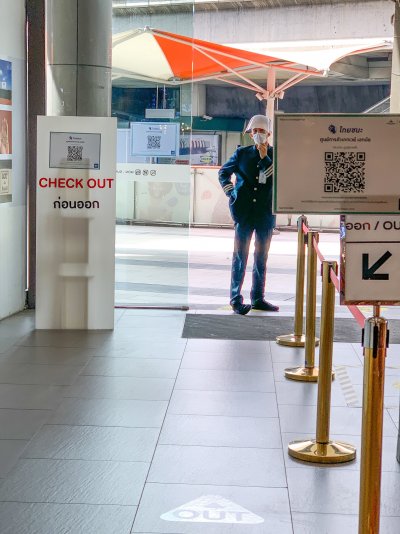I tend to agree, and it is also fairly simple to implement. Also, the way I understood the post, you only have to give your data if you actively want to enter somewhere; if you don't do that, your data stay with you, so it's different from the various phone tracking apps etc where you are continuously revealing where you are (anonymously or not). That seems to me to be a pretty fair bargain - you want something, you give something. And if you really don't want to share your data, you can make that choice by not entering the restaurant.

